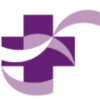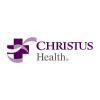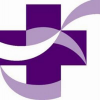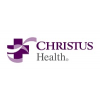
RN, Registered Nurse - Emergency Room
Description
Are you ready to apply Make sure you understand all the responsibilities and tasks associated with this role before proceeding.
Summary :
The competent Nurse, in the same or similar clinical setting, practices independently and demonstrates an awareness of all relevant aspects of a situation.
Provides routine and complex care, with the ability to on long-range goals or plans. Continues to develop the ability to cope with and manage contingencies of clinical nursing.
Makes appropriate assignments and delegates to other care providers as a means to help manage the clinical situation.
The Emergency Department of CHRISTUS Spohn Hospital Kleberg is a 12-bed unit organized and designed for the immediate treatment of emergency medical and / or surgical conditions.
We have a Medical provider 24 hours per day with An Advance Practitioner 9 hours per day. The Emergency Department had been designated a Level IV Trauma Center by Texas Department of Health.
The department is responsible for initiating lifesaving procedures in all types of emergency situations and for providing emergency care for other conditions, including chronic medical problems and minor injuries and illnesses.
After emergency measures are implemented the patient may be transferred within the hospital, to another institution, or discharged home.
Our average daily census is 60. The most frequent medical diagnoses seen are R / O Myocardial Infarction, Congestive Heart Failure, Pneumonia , Cardiovascular conditions, cardiopulmonary conditions, Diabetes Mellitus, Hepatitis, Pancreatitis, URI and Urosepsis.
The most frequent surgical conditions are appendicitis, fractured hip and spontaneous abortion.
The ER staff work closely with the community by providing education on disease process and safety measures. We also volunteer our time and service to help out our local naval base during events such as "Wings over Texas" and our surrounding areas with events such as, "Beach to Bay.
Our team has been recognized for exceeding the goal for treating a MI or stroke patient. They have made changes to the overall flow in the ER to improve the door to doctor times and over all patient experience.
We have earned the Silver Award from the American Heart Association for our Stroke Care.
Responsibilities :
- Meets expectations of the applicable OneCHRISTUS Competencies : Leader of Self, Leader of Others, or Leader of Leaders.
- Consistent with the ANA Scope and Standards of Practice, provides nursing care utilizing the nursing process, including assessment, diagnosis, planning, intervention and evaluation for assigned patients.
- Addresses increasingly complex psychological, emotional, cultural, and social needs of patient and families in accordance with their level of practice.
- Using the appropriate protocol, administers medications and treatments; monitors for side-effects and effectiveness of the treatment prescribed.
- Documents patient history, symptoms, medication, and care given.
- Assess learning needs and provides education to patients, family members and / or care givers; identify issues and resources.
CORE COMPETENCIES
Standard I : Utilizes the Nursing Process
- Uses critical thinking skills to assess the basic physical, psychosocial, social, cultural, spiritual, and development needs of patient and families
- Communicates findings to appropriate healthcare team members
- Develops and uses a specific plan of care and modifies it to meet individual patient needs using evidence-based practice
- Implements patient care and therapeutic procedures; monitors and documents progression of treatment and teaching goals
- Evaluates the care and treatment(s) provided to the patient and the patient response to the care and treatment(s)
- Performs timely reassessment and documentation
- Must be able to perform unit-specific competencies based on the specific patient care need for the designated unit's patient population
Standard II. Patient Throughput & Patient Flow Process
- Anticipates and plans for admission / discharge / transfer needs to facilitate patient flow
- Utilizes appropriate systems of communication and tools to facilitate the discharge process
- Coaches on tools and techniques for checking, cross checking and validating orders to ensure accuracy
Standard III. Unit Operations
- Plans, directs, and evaluates the overall nursing care and functions in a particular nursing unit during an assigned shift
- Demonstrates good stewardship in proper use and maintenance of equipment and Supplies
- Assesses departmental staffing needs; actively participates in resourcing efforts.
- Educates and trains others on the operations, ethics, and regulations within the industry
Standard IV. Safe Practice / Quality Care / Regulations
- Incorporates patient safety practices / guidelines to promote a safe environment resulting in positive patient outcomes
- Demonstrates accountability for nursing research and quality improvement activities
- Provides evidence-based nursing care
- Communicates patient information effectively across the continuum of care
- Educates and trains others on the operations, ethics, and regulations within the industry
- Knowledge of federal, state and local healthcare-related laws and regulations; ability to comply with these in healthcare practices and activities
TECHNICAL COMPETENCIES
Clinical Policies and Standards
- Follows a specific set of standards and associated clinical procedures
- Analyzes policy and standards documentation and ensures organizational compliance
- Provides feedback for improvement of procedures
- Assists in the development and implementation of specific procedures
- Works with control and monitoring mechanisms, tools and techniques
Health Information Documentation
- Shares experiences with maintaining paper and electronic patient documentation
- Walk through the steps and procedures for receiving, validating and updating patient records
- Describes the flow of information between various stations or units
- Discusses the functions, features and document flow of electronic documentation
- Transcribes verbal orders; explains techniques for ensuring their accuracy
- Explains health information documentation best practices and their rationale across health care practices
Medical Equipment
- Describes experience with basic medical equipment used in own unit or facility
- Uses standard diagnostic tools and techniques to resolves common equipment problems
- Educates patients about the appropriate use of home medical equipment
- Ensures that all equipment and related supplies are in proper working order prior to use to ensure patient safety
- Inspects, troubleshoots and evaluates incoming equipment
Medical Order Processing
- Shares experiences with processing medical orders for one or more groups of patients or conditions
- Describes functions and features of the system used to enter, validate, update and forward medical orders
- Discusses common errors, their sources and procedures for correcting
- Explains considerations for entering and following standing orders
- Differentiates between standing orders and preprinted orders and considerations for each
Patient Chart Reading and Interpretation
- Describes experiences in reading and interpreting patient charts for patients on unit and under own care
- Reviews patients' charts for completion and accuracy; identifies and alerts to mistakes or omissions
- Recognizes unexpected readings and alerts nursing or medical staff
- Relates examples of mis-readings or misinterpretations and lessons learned
- Reviews, discusses and validates own interpretation with others
Patient Safety
- Shares experiences with ensuring safety for one or more patient groups or settings
- Explains key features of safety guidelines and procedures for those groups and settings
- Listens and responds to safety inquiries from patients and family members
- Recognizes and addresses physiological and psychological signs of problems
- Describes considerations for patients who can cause to harm to self, versus harm to others
- Utilizes appropriate systems to document misses and near misses, participates in immediate investigating, analysis and reporting in real-time
Job Requirements : Education / Skills
Education / Skills
Associate's Degree in Nursing
Experience
One year experience in nursing preferred.
Licenses, Registrations, or Certifications
- Current Texas State RN License or Compact RN License
- BLS (American Heart Association)
- ACLS required at time of hire for experienced RNs. New graduate nurses must obtain ACLS by the end of the clinical orientation period.
- PALS required at time of hire for experienced RNs. New graduate nurses must obtain PALS by the end of the clinical orientation period.
- Crisis intervention training required within 12 months of hire / transfer date
- For trauma designated facilities, TNCC required within 6 weeks of hire for experienced RNs. New graduate nurses must obtain TNCC within 18 months of hire / transfer date.
Work Schedule : 7PM - 7AM
7PM - 7AM
Work Type : Full Time
Full Time
EEO is the law - click below for more information :
We endeavor to make this site accessible to any and all users . click apply for full job details







